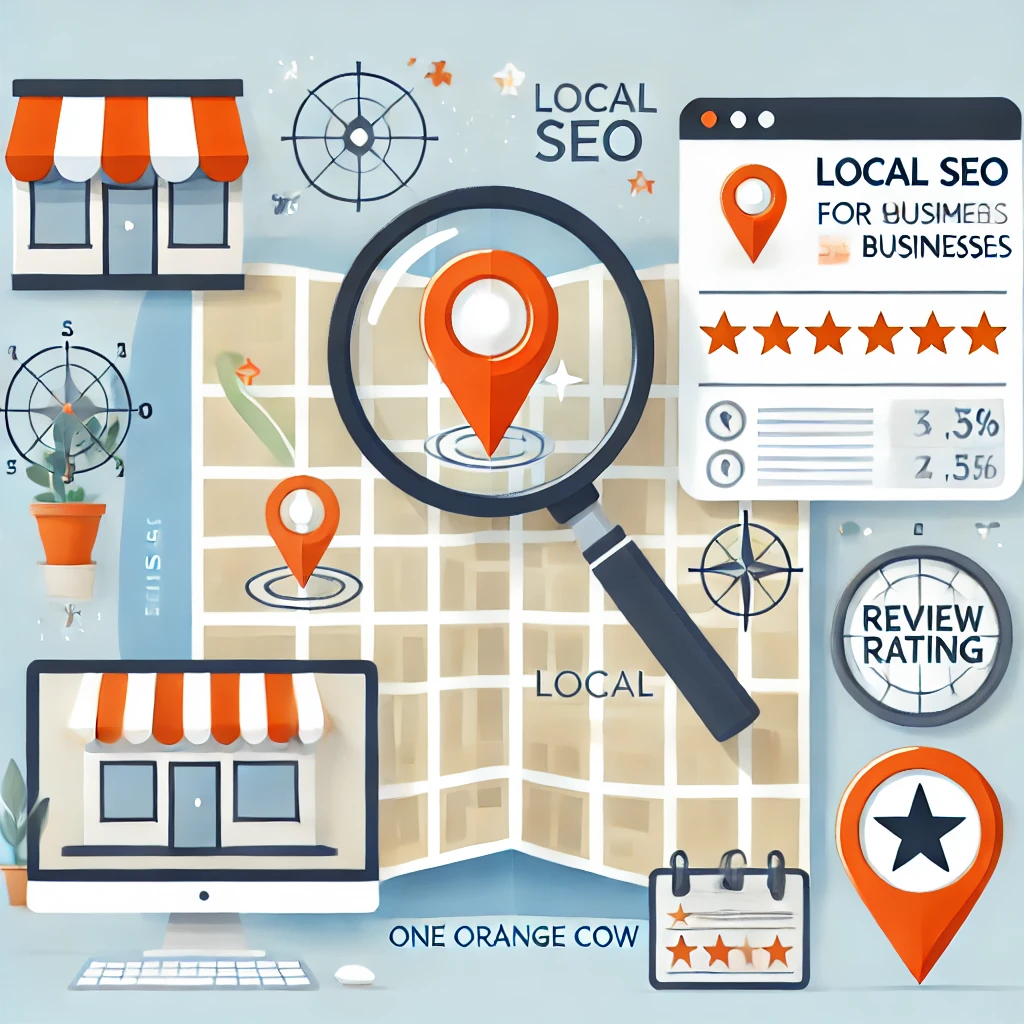Local SEO Tips for Small Businesses: How to Rank #1 in Your Area
By Brendan Byrne Thursday, December 5, 2024

In an increasingly digital world, being found online is vital for small businesses that want to attract local customers. Local SEO helps businesses appear in search results when people nearby are looking for products or services like theirs. By mastering local SEO, your business can rank #1 in your area, bringing more traffic to both your website and your physical location. Here’s a guide on how to dominate local search results and grow your business.
Optimise Your Google Business Profile (formerly Google My Business)
Your Google Business Profile is your business’s digital front door, and it plays a crucial role in local SEO. This tool allows you to control how your business appears in Google’s local search results and Google Maps. When optimised properly, it can help your business show up in the Local Pack—the coveted top three local business listings on Google’s first page.
To get the most out of your Google Business Profile:
- Ensure Consistent NAP (Name, Address, Phone Number) – Your contact information should be accurate and consistent across all platforms to avoid confusing customers or search engines.
- Set Accurate Business Hours – Keeping your business hours up to date, including during holidays, is essential for building trust.
- Choose Relevant Business Categories – Select the categories that best match your services or products to make it easier for people to find you.
- Add High-Quality Photos – Pictures of your business, products, or services help attract potential customers.
- Utilise Google Posts – Share updates, promotions, and events to keep your profile active and engaging.
Regularly update your profile to show Google (and your audience) that your business is relevant and active, which can positively impact your rankings.
Build Local Backlinks and Citations
Backlinks, which are links from other websites pointing to yours, are a key factor in SEO. For local SEO, local backlinks—links from businesses, blogs, or organisations within your community—are especially important. These links tell search engines that your business is well-connected and relevant within your local area.
Here’s how to get local backlinks:
- Collaborate with Local Businesses – Partner with local suppliers, charities, or organisations. If they link to your website from theirs, it boosts your local credibility.
- Engage with Local Influencers or Bloggers – Have them feature your business in their content. Even a small mention can lead to a valuable backlink.
- Sponsor Local Events – Events often have websites with “sponsors” or “partners” pages that can link back to your business.
Citations, or mentions of your business’s NAP across various websites (like Yelp, Yellow Pages, or local directories), are also important. Having consistent citations across the web helps Google confirm the legitimacy of your business, making it more likely you’ll rank higher in local searches.
Target Local Keywords in Your Content and Metadata
Local SEO requires a targeted approach to keywords. Instead of trying to rank for broad terms, you should focus on local keywords that include geographical terms such as your city, neighbourhood, or even nearby landmarks. For instance, a Brisbane-based hair salon might aim to rank for “hair salon in Brisbane” or “best Brisbane hairstylist.”
Use local keywords in the following areas:
- Page Titles and Meta Descriptions – These are the first things people see in search results, so including local keywords here is essential for getting clicks.
- Headings and Subheadings – Including local keywords in your H1 and H2 headings helps both users and search engines understand your content’s focus.
- Content – Incorporate local keywords naturally throughout your website, particularly on service pages, blog posts, and product descriptions.
- Alt Text for Images – Use local keywords to describe images on your site. For example, a plumber might use “Sydney plumber fixing pipes” in their image alt text.
By optimising these elements with local keywords, you improve your chances of appearing in search results when potential customers search for services in your area.
Encourage and Manage Online Reviews
Online reviews are a major trust signal, both for Google and for potential customers. A steady flow of positive reviews can significantly boost your local SEO and help your business stand out in search results.
To build and manage reviews:
- Request Reviews from Happy Customers – Simply asking satisfied customers to leave a review can go a long way. Provide them with a direct link to your Google Business Profile or other review platforms for convenience.
- Respond to All Reviews – Engage with your customers by responding to both positive and negative reviews. Thank customers for positive feedback, and address any concerns raised in negative reviews calmly and professionally.
- Feature Reviews on Your Website – By showcasing glowing reviews on your site, you build social proof while enhancing your site’s local SEO.
Managing reviews effectively builds trust and can encourage more people to leave their own feedback, improving your business’s visibility in local searches.
Mastering local SEO is a crucial step for small businesses looking to dominate their local market. By optimising your Google Business Profile, building local backlinks and citations, targeting relevant local keywords, and managing online reviews, you can significantly improve your chances of ranking higher in local search results. Remember, local SEO is not a one-time task but an ongoing process. Regularly updating your information, staying engaged with your community, and keeping an active online presence will ensure your business remains visible and competitive. Take the time to invest in local SEO, and watch your business grow as you attract more local customers.